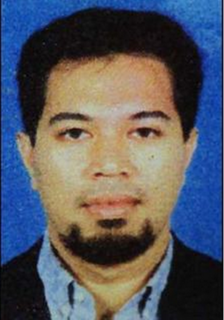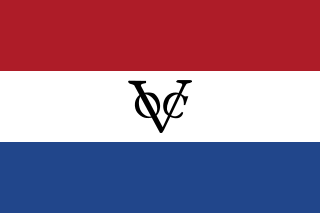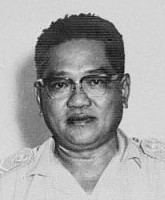
Central Sulawesi is a province of Indonesia located at the centre of the island of Sulawesi. The administrative capital and largest city is located in Palu. The 2010 census recorded a population of 2,635,009 for the province, and the 2015 Census of 2,876,689, while the latest official estimate is 3,042,100. Central Sulawesi has an area of 61,841.29 km2 (23,877 sq mi), the largest area among all provinces on Sulawesi Island, and has the second-largest population on Sulawesi Island after the province of South Sulawesi. It is bordered by the provinces of Gorontalo to the north, West Sulawesi, South Sulawesi and South East Sulawesi to the south, by Maluku to the east, and by the Makassar Strait to the west. The province is inhabited by many ethnic groups, such as the Kaili, Tolitoli, etc. The official language of the province is Indonesian, which is used for official purposes and inter-ethnic communication, while there are several indigenous language spoken by the Indigenous peoples of Central Sulawesi. Islam is the dominant religion in the province, followed by Christianity which are mostly adhered by the people in the eastern part of the province.

Noordin Mohammad Top was a Malaysian Muslim extremist, also referred to as
Terrorism in Indonesia refer to acts of terrorism that take place within Indonesia or attacks on Indonesian people or interests abroad. These acts of terrorism often target the government of the Republic of Indonesia or foreigners in Indonesia, most notably Western visitors, especially those from the United States and Australia.
Abu Dujana was the military leader of Jemaah Islamiah from 2005 until June 2007 when he was arrested.

The following outline is provided as an overview of and topical guide to Indonesia:

The Dutch East India Company had a presence in the Malay archipelago) from 1603, when the first trading post was established, to 1800, when the bankrupt company was dissolved, and its possessions nationalised as the Dutch East Indies.

The 2009 Jakarta Bombings were a terrorist attack which took place in Jakarta, Indonesia on 17 July 2009. At around 07:47 until 07:57 WIB, the JW Marriott and Ritz-Carlton Hotels in Setiabudi, South Jakarta, were hit by separate bombings five minutes apart. Nine people were killed, of whom three were Indonesian, three were Australians, two were from The Netherlands, and one was from New Zealand. More than 50 people were injured in the blasts. Both blasts were caused by suicide bombers, who checked into the hotels as paying guests several days earlier. The twin suicide bombings came four years after the previous serious terrorist attack in Indonesia.
The Walisongo school massacre is the name given to a series of attacks by Christian militants on 28 May 2000 upon several predominantly Muslim villages around Poso town, Central Sulawesi, Indonesia as part of a broader sectarian conflict in the Poso region. Officially, the total number killed in the attacks is 165, but there is no definite figure of how many died. The number of dead is believed to be more than the 39 calculated from bodies later discovered in three mass graves, and equal to or below the 191 quoted by Muslim sources.
The 2004 Poso bus bombing was terrorist attack that occurred in Central Sulawesi, Indonesia, on 13 November 2004. It targeted a bus travelling to the majority Christian village of Silancak. The bomb, an improvised explosive device, exploded at 9:15 a.m. (UTC+7), while the minibus was stopped at a market in Poso. Six people were killed and three injured in the blast. Witnesses later reported that three people were involved in the attack. Two suspects were detained, but later released.

Santoso, known as Abu Wardah, was an Indonesian Islamic militant and the leader of Mujahidin Indonesia Timur (MIT). He pledged allegiance to ISIL in July 2014. He was killed on 18 July 2016 by the Indonesian police after two years of hiding in the jungles near Poso, Sulawesi.
This is a list of events in 2016 in Indonesia.

The East Indonesia Mujahideen is a terrorist group operating out of Poso, Sulawesi in Indonesia. The group was led by Abu Wardah until he was killed by Indonesian police on 18 July 2016. After the death of Santoso, the group was led by Ali Kalora. The group has pledged allegiance to the Islamic State of Iraq and the Levant.
Andika Eka Putra was an Indonesian Islamic militant and member of the militant group based in Poso, Mujahidin Indonesia Timur. He was on the most-wanted list (DPO) of the Indonesian Police, along with 44 other terrorists.
Adji Pandu Suwotomo or Maret Pamungkas, better known as Sobron, was an Indonesian Islamic militant, and also member of the militant group based in Poso, Mujahidin Indonesia Timur (MIT). Sobron is one of those included on the police's most-wanted list (DPO) by the Indonesian Police, along with 44 other terrorists.
Events in the year 2017 in Indonesia.

Longki Djanggola is an Indonesian politician and currently the governor of Central Sulawesi. He was responsible for launching the province's joint Chinese-Indonesian nickel smelter in 2015.

Frits Johanes Tumbelaka, also known as Broer Tumbelaka, served in the Indonesian military, rising to the rank of lieutenant colonel. He also served in the government as governor of North and Central Sulawesi and, after the province was split into North Sulawesi and Central Sulawesi, he served as the first governor of North Sulawesi. He played an important role in finding a peaceful solution to the conflict between the Indonesian government and the Permesta movement.
Sheikh Mas Mohammad Arsyad Thawil al-Bantani better known as Sheikh Arsyad Thawil was an ulama and Indonesian hero who also fought on the Cilegon War from 9 to 30 July 1888 with Ki Wasyid, Tubagus Ismail, and others. Thawil was a student of Sheikh Nawawi al-Bantani, an Indonesian Islamic teacher from Banten who became the Imam of the Great Mosque of Mecca.









